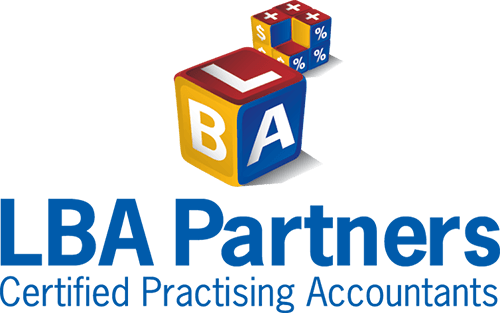P r a c t i c e U p d a t e
August 2011
ATO focus on SMSFs
The ATO has released its 'Compliance Program 2011/12' outlining key focus areas attracting its attention for the coming year.
They have a range of measures in place to detect and deal with those who evade their obligations, including working across government agencies and the use of overseas networks.
Their key focus areas this year include the cash economy, work related deductions and self-managed superannuation funds (SMSFs).
While the ATO "will continue to work with SMSFs to fix genuine problems", they state they may also take firm action, including making funds non-complying, if they commit serious breaches of the rules.
Editor: If a superannuation fund is made 'non-complying', it will effectively be taxed on the value of its assets at 46.5%, plus their income will also be taxed at 46.5% going forward.
This year, the ATO's compliance activity in relation to SMSFs will focus on:
- newly registered funds, to ensure they have not been established to provide illegal early release of super;
- funds lodging their first annual return to ensure they are entitled to receive their 'notice of compliance';
- related-party investments, to ensure they are not contravening the 5% in-house asset limit or the prohibition of lending to members;
- exempt current pension income and non-arm's length income; and
- re-reporting of contributions (particularly if the re-reporting results in the member no longer being liable for excess contributions tax).
Warning: Investing in overseas property
ASIC has recently received a number of complaints about promoters who are encouraging Australians to invest in the United States property market.
The distressed property market in the United States means a house can be bought much more cheaply than in Australia. However, investing in overseas property is a lot more risky than investing in property in Australia, and it is much more difficult to make sure the investment suits the investor's needs without local knowledge and the ability to regularly inspect the property.
According to ASIC, some people have lost a lot of money in the US property market, including investors who are sold properties that need extensive renovations and repairs, or that are in neighbourhoods which are prone to squatters and vandalism, making it almost impossible for owners to find reliable tenants or property managers.
Investors must also factor in Australian tax laws, local property taxes, insurance, management costs and ongoing repairs.
Editor: The upshot of their message appears to be "Be careful and do your research".
New this year to family tax
The ATO has provided a summary of many of the tax changes that apply to families from 1 July 2011.
Education tax refund – Inclusion of school uniforms
The Government has changed the education tax refund to include school-approved uniforms (including hats, footwear and sports uniforms approved by a school as its uniform) purchased from 1 July 2011.
Dependent spouse tax offset phase-out
From 1 July 2011, eligibility for the dependent spouse tax offset will be confined to taxpayers with a dependent spouse born before 1 July 1971.
Taxpayers who maintain an invalid or permanently disabled spouse, support a carer or who are eligible for the zone, overseas forces or the overseas civilian tax offsets are exempt from the new age limit and will still effectively be able to claim the dependent spouse tax offset via an expanded invalid spouse, zone, overseas forces or overseas civilian offset.
Low income tax offset – Changes for minors
The Government will remove the ability of most minors (children under 18 years of age) to access the low income tax offset to reduce tax payable on their unearned income (for example, distributions from discretionary trusts, dividends, interest, rent, royalties and other income from property).
Medical expenses
Taxpayers can claim a tax offset of 20% of their net medical expenses over the set threshold, which is $2,060 for the 2011/12 income year (up from $2,000 for the 2010/11 income year).
Paid parental leave
Australia's Paid Parental Leave Scheme started on 1 January 2011. Eligible working parents will receive parental leave pay (currently $589.40 a week before tax) for a maximum period of 18 weeks.
Superannuation: Common mistakes made by employers
The ATO has reminded employers of their superannuation obligations and has set out common mistakes they are seeing, including:
- paying insufficient super contributions for eligible employees;
- missing the quarterly cut-off dates (28 October, 28 January, 28 April, 28 July);
- not understanding that in some circumstances super should be paid for contractors, even if the contractor quotes an ABN;
- not keeping accurate records;
- not lodging a Superannuation Guarantee Charge statement if they have not paid their employees' super to the fund by the due date or don't pay the correct amount; and
- not passing on an employee's tax file number to their super fund. Employers must provide their employee's tax file number to their super fund within 14 days of receiving it. If they don't, the employee's super contributions will be subject to extra tax and may not be accepted by the super fund (and the employer may also be penalised).
Car depreciation limit for 2011/12
The ATO has advised that the car depreciation limit for the 2011/12 financial year is $57,466 (unchanged from the 2010/11 year). This amount is also the luxury car tax threshold for 2011/12 (which is used to determine if luxury car tax is payable).
Example
On 9 July 2011 a taxpayer purchases a motor vehicle for $65,000 wholly for use in carrying on their business.
In working out the vehicle's depreciation for the 2011/12 income year, the cost of the vehicle for depreciation purposes is basically reduced to $57,466.
Reasonable Overtime Meal Allowance Amounts – 2011/12
The reasonable amount for overtime meal allowance expenses, where an allowance is paid under an award, order, determination, industrial agreement or a Commonwealth, State or Territory law, is $26.45 per meal for 2011/12.
An overtime meal allowance (being an allowance paid for food and drink in connection with overtime worked) which does not exceed the reasonable amount does not need to be shown on the payment summary, and the employee may not need to show it on their tax return if it has been fully spent on deductible expenses.
Please Note: Many of the comments in this publication are general in nature and anyone intending to apply the information to practical circumstances should seek professional advice to independently verify their interpretation and the information's applicability to their particular circumstances.
Management Consulting
We have the know-how and experience to offer advice that helps you run your business more effectively.
Self-Managed Superannuation Funds
At LBA Partners we provide the professional advice you need to manage your own fund and greatly simplify the process for you.



